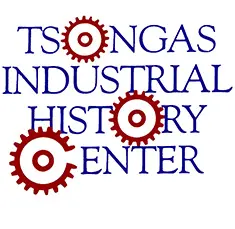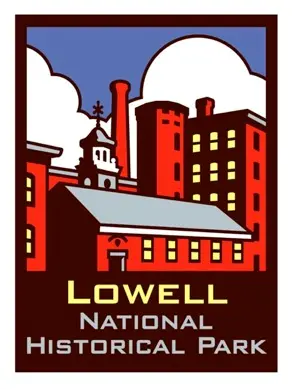All of our programs have been reviewed to ensure their relevance to state and national standards. (See the Education Program descriptions.)
State Curriculum Frameworks
Massachusetts
Grade 2 – Social StudiesTopic 3. History: migrations and cultures
- 1. Investigate reasons why people migrate (move) to different places around the world, recognizing that some migration is voluntary, some forced (e.g., refugees, people driven from their homelands, enslaved people).
- 2. Give examples of why the United States is called "a nation of immigrants."
- 4. Identify what individuals and families bring with them (e.g., memories, cultural traits, goods, ideas, and languages or ways of speaking) when they move to a different place and identify the significant impacts of migration; identify elements that define the culture of a society (e.g., language, literature, arts, religion, traditions, customs); explain how the community is enriched by contributions from all the people who form it today.
Social-Emotional Learning frameworks:
- Self-Awareness: The ability to understand one's own emotions, thoughts, and values and how they influence behavior across contexts. This includes capacities to recognize one's strengths and limitations with a well-grounded sense of confidence and purpose.
- Social Awareness: The ability to understand the perspectives of and empathize with others, including those from diverse backgrounds, cultures, & contexts. This includes the capacities to feel compassion for others, understand broader historical and social norms for behavior in different settings, and recognize family, school, and community resources and supports.
- Relationship Skills: The ability to establish and maintain healthy and supportive relationships and to effectively navigate settings with diverse individuals and groups. This includes the capacities to communicate clearly, listen actively, cooperate, work collaboratively to problem solve and negotiate conflict constructively, navigate settings with differing social and cultural demands and opportunities, provide leadership, and seek or offer help when needed.Social-Emotional Learning frameworks:
History and Social Science and the Standards for Literacy
Speaking and Listening Standards, Grade 2
- Topic 3. Economic growth in the North, South, and West
- 2. Analyze the effects of industrial growth throughout antebellum America, and in New England, the growth of the textile and machinery industries and maritime commerce.
- c. the causes and impact of the wave of immigration from Northern Europe to the United States in the 1840s and 1850s (e.g., the impact of the English occupation of Ireland, the Irish famine, and industrial development in the U.S.)
- e. the role of women as the primary workforce in New England textile factories and female workers’ activism in advocating for reform of working conditions
- 2. Analyze the effects of industrial growth throughout antebellum America, and in New England, the growth of the textile and machinery industries and maritime commerce.
NEW HAMPSHIRE
Grade 3-4 – Geography
- SS:GE:4:2.4: Illustrate the ways in which regions change, e.g., changes in local neighborhoods or changes in the United States through westward expansion. (Themes: C: People, Places, and Environment, E: Cultural Developments, Interactions, and Change, I: Patterns of Social and Political Interactions
- SS:GE:4:4.2: Describe the types of historical patterns of human migration, e.g., chain migration or slave migration Themes: C: People, Places, and Environment, I: Patterns of Social and Political Interaction)
- SS:GE:4:4.3: Evaluate the effects of migration on the characteristics of place, e.g., cultural awareness of food choices. (Themes: E: Cultural Development, Interaction, and Change)
Grade 3-4 – US/NH History
- SS:HI:4:3.3: Explore how groups have enhanced the art, music, and literature of our nation, e.g., Latinos or Franco Americans. (Themes: E: Cultural Development, Interaction, and Change F: Global Transformation, J: Human Expression and Communication)
- SS:HI:4:5.1: Explain the unique contributions of different ethnic and religious groups to New Hampshire history and culture, e.g., the Shakers or the French Canadians. ( Themes: E: Cultural Development, Interaction, and Change J: Human Expression and Communication I: Patterns of Social and Political Interaction)
- SS:HI:4:5.3: Trace the changes in the roles and lives of women and children and their impact on society, e.g., the family or workplace. (B: Civic Ideals, Practices, and Engagement, I: Patterns of Social and Political Interaction)
- SS:HI:4:5.4: Explore attitudes towards diversity, e.g., segregation or inclusion. (Themes: E: Cultural Development, Interaction, and Change I: Patterns of Social and Political Interaction)
- SS:HI:4:5.5: Describe the reasons why various groups have come to the United States, e.g., enslavement or economic opportunity. (C: People, Places, and Environment, F: Global Transformation, H: Individual, Equality, and Authority)
Grade 3-4 – World History
- SS:WH:4:5.1: Describe different ways that societies around the world express their values and beliefs through practice, e.g., festivals and dress. (B: Civic Ideals, Practices, and Engagement, I: Patterns of Social and Political Interaction)
Common Core State Standards
Speaking and Listening Standards K-5
- Grade 4:1: Engage effectively in a range of collaborative discussions (one-on-one, in groups, and teacher-led) with diverse partners on grade 4 topics and text, building on others’ ideas and expressing own clearly.
- C: Pose and respond to specific questions to clarify or follow up on information, and make comments that contribute to the discussion and link to the remarks of others.
- D: Review key ideas expressed and explain their own ideas and understanding in light of the discussion


